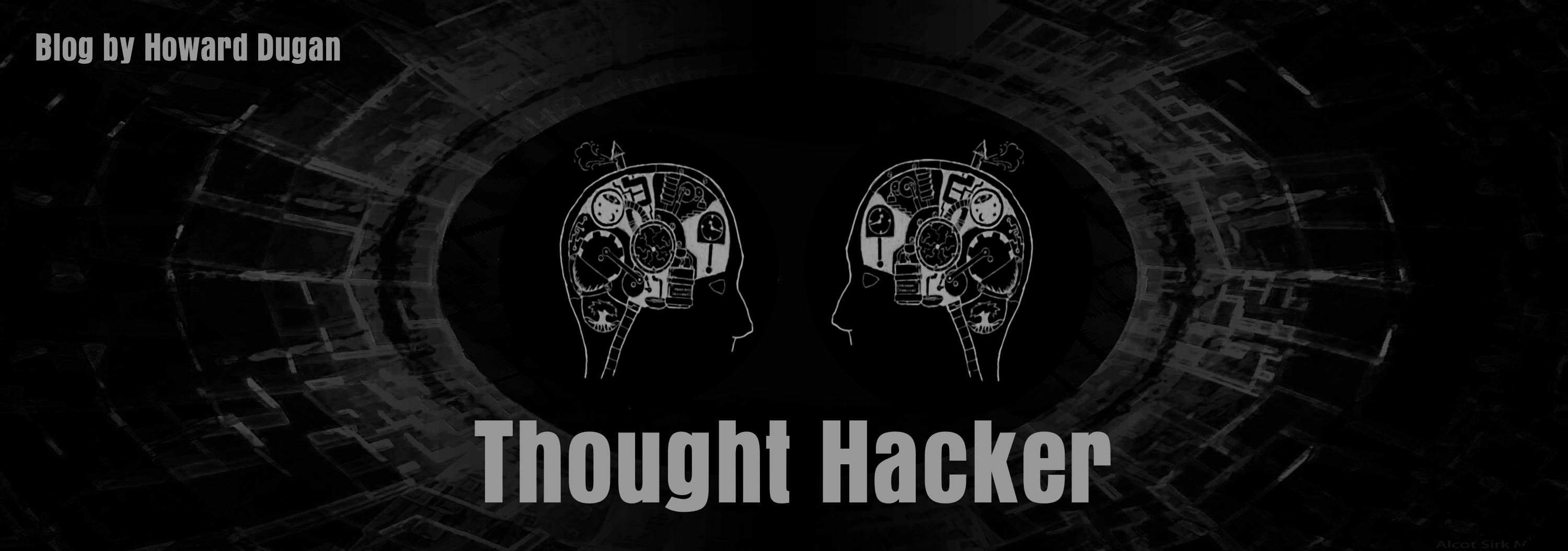
 | 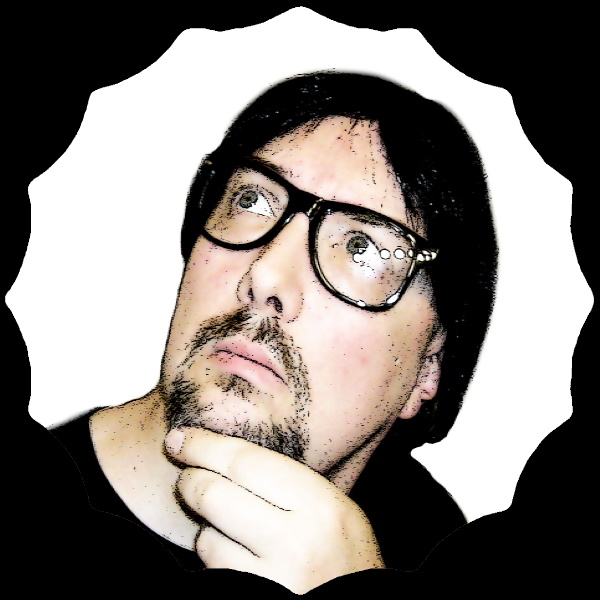 |
         |
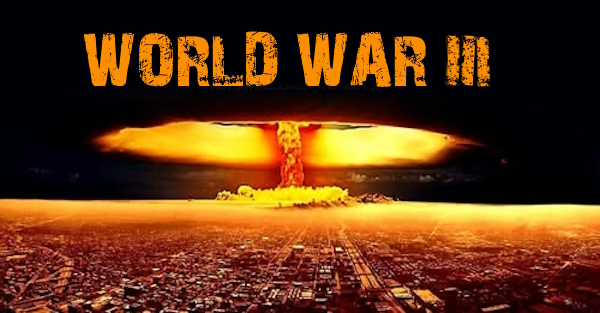 HINDSIGHT 20/20 Posted 12/2024 by Howard C. Dugan The provocative question of whether World War III has commenced has gained traction, particularly in light of recent remarks by Valery Zaluzhny, a high-ranking Ukrainian official. Zaluzhny posits that the global dimensions of the current conflict - marked by the involvement of North Korean personnel, the deployment of Iranian military technology, and China's strategic alignment with Moscow - suggest the war has transcended regional boundaries and assumed a profoundly international character. This raises a deeper philosophical inquiry: why do authoritarian regimes so often ascend to power, and why do populations acquiesce to their rule? Historically, it is evident that individuals frequently place unwarranted faith in leaders, presuming them to act in the collective interest. However, such trust can obscure ulterior motives and facilitate the consolidation of power by unaccountable elites. In this context, the notion of a "Deep State" working toward a reconfiguration of global governance - often referred to as the New World Order - is gaining resonance. This framework allegedly intersects with the Great Reset, a proposed overhaul of economic and societal systems, culminating in what critics argue is a drive toward annihilation: the erosion of national sovereignty and the ushering in of a post-nuclear authoritarian paradigm. Such a trajectory, if unchecked, risks destabilizing the foundational principles of self-determination and democratic governance in favor of a centralized, autocratic model of global order. The question, then, is not only whether a global conflict is unfolding but also whether the very fabric of international sovereignty is being unraveled under the guise of crisis management and geopolitical realignment. Consider
this quote "In the global political landscape, the hero's journey
aligns closely with the path of the fool. Within the constructs of
those who orchestrate the chaos, heroes are rendered not as paragons of
value but as liabilities, dismissed as detriments rather than assets
within the prevailing narrative." - Howard C. Dugan |
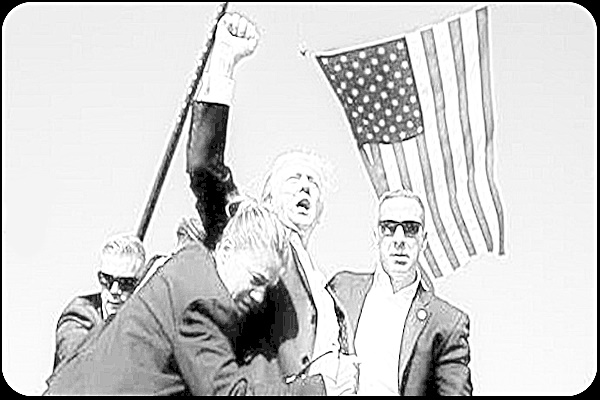 Posted a Quote "We stand at the precipice of a Trump victory, irrespective of motive or intent. While the streets remain calm and the ballots uncontested, the Left recoils in shock, followed swiftly by mounting animosity. It is imperative to recall that the entrenched powers - the Deep State and militaristic architects of a New World Order - would sooner see destruction than relinquish their grip on shaping a future of peace, equality, and sovereign autonomy. These stewards of institutional authority, a symbiotic force against the people, are desperate to evade accountability for their transgressions - treason, abuse of power, and the systemic erosion of civil rights." — Howard C. Dugan |
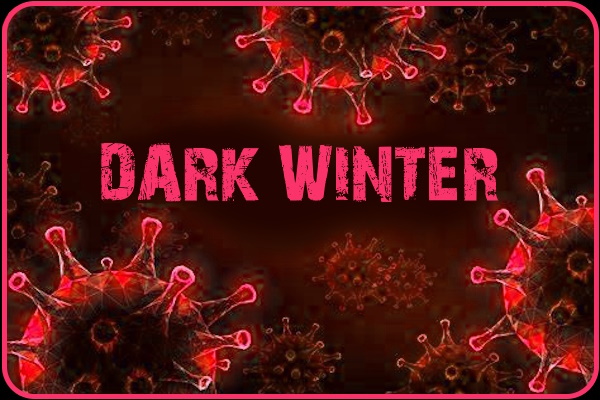 UNDERSTANDING THE IMPLICATIONS OF DARK WINTER Posted 11/2024 by Anonymous The phrase "dark winter" has surfaced repeatedly over the years, often invoked by powerful figures during times of crisis. While it may sound like a metaphor for a harsh season ahead, its roots are much more chilling and deliberate. The term traces back to a 2001 military simulation, named "Dark Winter," which exposed the catastrophic consequences of a smallpox outbreak in the United States. More than just a hypothetical scenario, Dark Winter has since become emblematic of government exercises focused on pandemic preparedness, national security, and the often stark choices between protecting the public and managing societal order. In June 2001, the U.S. government conducted a bio-terrorism simulation called Dark Winter. Spearheaded by the Center for Strategic and International Studies (CSIS) and supported by several government agencies, the simulation's purpose was to examine how the nation would respond to a deliberate smallpox outbreak. The scenario began with an initial smallpox attack in Oklahoma City, followed by additional outbreaks in Pennsylvania and Georgia. Within days, the virus spread uncontrollably, overwhelming the healthcare system, causing mass panic, and leading to widespread shortages of medical supplies, including vaccines. One of the most critical aspects of the Dark Winter simulation was the recognition of vaccine scarcity. The public health response was hampered by the fact that there simply weren't enough vaccines available to immunize the entire population. This shortage led to difficult decisions about who should receive the limited doses. Compounded by the rapid spread of the disease, the lack of public access to vaccines contributed to a breakdown of social order, with riots and civil unrest occurring as people fought for survival. The name Robert Kadlec stands out in the history of pandemic preparedness and bio-terror simulations. Kadlec, a physician and expert in biodefense, played a pivotal role in both the Dark Winter exercise and another critical simulation in 2019 called Crimson Contagion. Crimson Contagion simulated the spread of a novel influenza virus originating from tourists arriving in Chicago from China, underscoring the risks of pandemics and how easily global travel can accelerate the spread of infectious diseases. Kadlec's involvement in both exercises illustrates a continuity of concern over biological threats, whether from deliberate acts of terrorism or natural pandemics. However, the lessons learned from these simulations also reveal an unsettling reality: government preparations for these scenarios are not necessarily focused on saving the general public. Instead, the exercises emphasize maintaining order, protecting critical infrastructure, and making hard decisions about resource allocation—decisions that can often leave the most vulnerable populations at risk. The Dark Winter and Crimson Contagion simulations both highlighted the importance of preparation, but they also exposed the deep inequalities in how that preparation translates into real-world action. In the aftermath of these exercises, the recommendations made by officials often prioritize protecting government functions, securing critical infrastructure, and ensuring the continuity of operations over safeguarding the general population. This approach raises troubling ethical questions about whose lives are deemed most valuable in a crisis and who is left to fend for themselves. For example, during the Dark Winter exercise, officials were faced with the challenge of distributing limited vaccine supplies. The scenario required them to prioritize vaccinations for essential personnel - such as healthcare workers, military members, and government leaders—while leaving large segments of the general population unprotected. The simulation revealed how quickly public trust can erode when people feel abandoned by their government during a crisis. Similarly, Crimson Contagion underscored the vulnerability of the public in the face of a rapidly spreading pandemic. The simulation's focus on the role of tourists as vectors for disease highlighted the potential for global travel to exacerbate the spread of infectious diseases. Yet, despite this recognition, the response to actual pandemics—like the COVID-19 pandemic—has shown that governments often struggle to balance public health needs with economic and political considerations. When public officials invoke the term "dark winter," they are referring to more than just a difficult season ahead. They are drawing on the lessons of past simulations that reveal how unprepared our systems are to handle large-scale biological threats. The threat of a dark winter is not just about the virus itself—it is about the societal collapse that can follow when public health systems are overwhelmed, and governments are forced to make impossible choices about who lives and who dies. The COVID-19 pandemic though primarily a disease of the elderly provided a grim reminder of the Dark Winter scenario. In this trial run simulation the vaccine distribution became a global race towards inoculation, with wealthier nations securing the majority of available doses while poorer countries were left waiting. In this exercise the healthcare systems around the world were simulating being pushed to the brink, and in many cases, essential workers pretended to bore the brunt of the crisis professing to have little support while singing and dancing their way to fame on social media. The pandemic also highlighted the importance of transparent communication and public trust - two factors that were absent during this trial run. The COVID-19 pandemic though not a real threat showed that a rapid response could in fact happen in a time of crisis such as a pandemic or bio-terror situation. The phrase "dark winter" may be intended to evoke fear, but it should also serve as a warning. The simulations of the past have shown us the potential consequences of unpreparedness, but they have also provided a roadmap for how to build a more resilient response. Where we can move beyond the fear and create a future where a dark winter is not an inevitability but a challenge we are ready to face with another speedy roll-out of vaccines using the model of Trump's Warp Speed Program. |
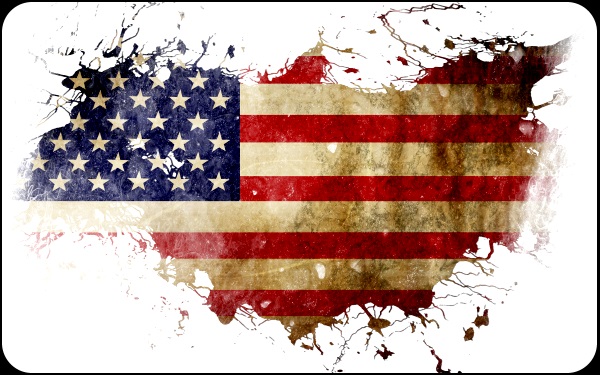 DELIBERATE DECAY, THE UNRAVELING OF AMERICA Posted 10/2024 by Anonymous In contemplating the state of America today, one cannot escape the glaring realities of its decline across multiple domains. The financial sector quivers on the precipice of insolvency, the educational apparatus falters under the weight of unmet promises, the military grapples with identity politics overshadowing its core mission, and societal norms are reshaped by the unchecked influence of self-serving agendas. Yet, amidst this unraveling fabric of American society, a pivotal question emerges: Is this descent deliberate? Defined by a nuanced interplay of economic instability, educational disillusionment, military identity crises, and societal upheaval, the current predicament reflects a tapestry woven with threads of neglect, mismanagement, and perhaps, intentional destabilization. FINANCIAL INDUSTRY: At the heart of America's economic woes lies a financial sector marred by greed, speculation, and regulatory loopholes. The looming specter of insolvency threatens to unravel the very fabric of the nation's economic stability, exacerbating income inequality and perpetuating cycles of financial insecurity among its populace. EDUCATION SYSTEM: The erosion of America's education system stands as a testament to unfulfilled promises and misplaced priorities. An entire generation of students is left disillusioned and ill-equipped to navigate an increasingly complex world, as educational institutions prioritize conformity over critical thinking and standardized testing over holistic development. MILITARY: In the corridors of power, the military grapples not only with external threats but also with internal struggles over identity politics. As debates over pronouns overshadow discussions on strategy and readiness, the core mission of national defense risks being eclipsed by divisive ideological agendas, eroding morale and operational effectiveness. SOCIETAL REIMAGINATION: Meanwhile, society finds itself at a crossroads, where the reins of power are wielded by narcissists with access to the government's unlimited checkbook. As societal norms are reshaped to serve the interests of the few at the expense of the many, the very essence of democracy is called into question, giving rise to a culture of entitlement and apathy. The recognition of these systemic flaws should serve as a wake-up call to all, yet the insidious nature of societal conditioning and behavior modification obscures the truth from the masses. Through carefully crafted narratives and manipulation of public discourse, the powers that be have succeeded in convincing many that radical overhaul is the only path forward. The unraveling of America is not merely a consequence of happenstance but rather a culmination of deliberate actions and systemic failures. In order for us to arrive at this conclusion, let us not overlook the old Chinese communist slogan 'Build Back Better'. |
 BYE-BYE, MISS AMERICAN PIE Posted 9/2024 by Anonymous The discourse surrounding the future of America is one imbued with complexity and controversy, particularly as it intersects with the notion of the "American Dream" and its potential transformation into what some perceive as the "New American Nightmare." At the heart of this debate lies the question of whether the influx of migrants, orchestrated by globalist agendas, has irreparably altered the fabric of American society, leading to overwhelmed communities and unforeseen consequences. The concept of the American Dream has long been synonymous with the ideals of opportunity, prosperity, and upward mobility. It is the belief that through hard work, determination, and meritocracy, individuals can achieve success and attain a better life for themselves and their families. However, the narrative surrounding the American Dream has undergone profound scrutiny in recent times, as socioeconomic disparities persist and the effects of globalization manifest in unprecedented ways. Central to the discussion is the role of globalists in shaping the trajectory of American society. The assertion that millions of individuals from diverse corners of the world have been migrated into American communities raises pertinent questions about the intentions behind such actions. Are these migrations part of a larger global agenda aimed at reshaping demographic landscapes and fostering socio-political transformations? Or are they merely a consequence of external factors, with America inadvertently bearing the brunt of global migration patterns? The notion of communities being overwhelmed and unprepared for the influx of migrants underscores the tangible challenges posed by mass migration. Strains on infrastructure, resources, and social services inevitably arise when confronted with sudden demographic shifts of such magnitude. The speed and weight of this invasion, as described, evoke imagery of societal upheaval and disarray, prompting introspection into the capacity of a nation to absorb and integrate diverse populations. As traditional narratives of success and opportunity come under scrutiny, the dream of a better future for all Americans appears increasingly elusive. The fear of losing one's cultural identity, economic stability, and social cohesion amplifies anxieties surrounding the future trajectory of this 'Great Replacement'. |
 SEINFELD VS. FRIENDS Posted 8/2024 by Thomas Smith Both shows were American television sitcoms set mostly in apartments in Manhattan. One has been described as "a show about nothing," but both frequently concentrated on the details of day-to-day living. However, have you ever noticed that you can never get both shows at once or understand the humor of both at the same time. I have never met someone who enjoyed both simultaneously; most individuals either preferred one or the other. Although I formerly loved Seinfeld and still do, I briefly started to enjoy Friends while watching it with my uncle in the assisted living facility. What was intriguing was that a year or two later, when I returned to Seinfeld, I no longer understood the humor. I found the show to be, forgive the pun, "a show about nothing,” which is basically the idea of both series since their concepts are so similar. What makes them different, and what psychological principles underlie the fact that we cannot like both programs at the same time? My Theory is as follows: Seinfeld was completely oblivious or entirely indifferent to any sentimentality and was frequently at times callous, while Friends was a sentimental warm loving type of comedy the complete opposite. These two personality types cannot coexist in the mind at the same time since they obviously contradict one another. Although the genuine psychology of the audience may be quite different from that of the shows being as we always want to be something that we are not while we take for granted what we really have. Thus, Seinfeld fans may be perhaps sentimental and romantic in real life and take it for granted or simply need a break from it, whereas Friends viewers yearn for that sentimentality and love that they are missing in real life and may even be hopeless romantics, to use a term that suits the program. You see for instance doctors and nurses considering that they spend a lot of time in hospitals, presumably they wouldn't appreciate watching television series about hospitals in their free time. After all we don't watch these shows for reality per se, but rather we watch these shows to escape it... |
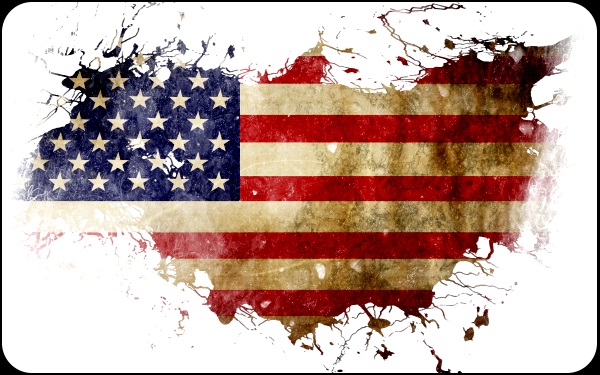 Posted A Quote 7/2024 "The
owners of this country know the truth: It's called the American dream
because you have to be asleep to believe it." - George Carlin |
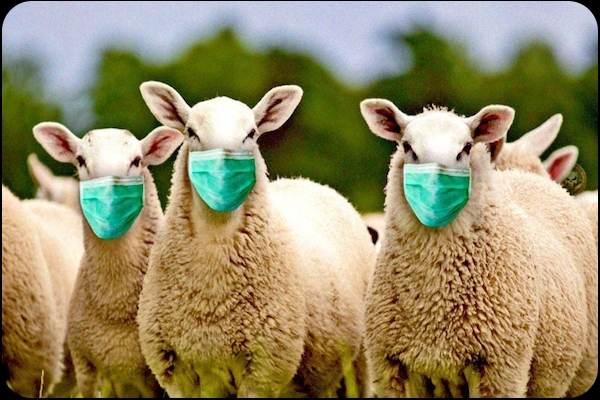 THE BIRD FLU FRAUD Posted 6/2024 by Howard Dugan Another human instance of avian flu? The press claims that this one is unique. There are just two previous documented incidences of avian flu in humans. The story of pasteurized milk has also evolved. Raw milk is no longer the only thing at stake; now, all milk is being targeted. Without a doubt, even though nobody is ill or dead, by all means, get your shot. Also the sheep are furious that wearing a mask is now, ironically, illegal in North Carolina, therefore masks are on, and again masks are off... Has it ever occurred to anyone that they will not be able to utilize traditional vaccines this time around for the bird flu because these vaccines use incubated eggs in their manufacturing process? Which ultimately will serve conveniently as the perfect justification for them to introduce another forced MRNA vaccination roll out. As the deception evolves, cannot the sheep see their end through this latest bird flu fraud... |
 MEDICIAL SCIENCE, THE NEW RELIGION Posted 5/2024 by Howard Dugan Let's talk about conspiracy theories. They've always been around, lurking in the shadows of society, preying on our fears and suspicions. But today, they seem to have taken on a whole new level of prominence, especially in the midst of this global pandemic. Enter the Covid Conspiracy. It's a tangled web of beliefs and narratives that range from questioning the origins of the virus to downright accusing governments and pharmaceutical companies of malicious intent. Some say it was engineered in a lab, others claim it's a hoax blown out of proportion for political or economic reasons. And then there are those who believe that the vaccines meant to save us are actually part of some sinister plan for population control, complete with microchips for tracking and DNA alteration. It's all too reminiscent of another dark chapter in history: the AIDS Conspiracy. Back in the 1980s, when HIV/AIDS first reared its deadly head, similar theories emerged. People were desperate for answers, and in their desperation, they turned to speculations and mistrust of authorities. Some said HIV was deliberately created and spread, while others claimed that effective treatments were being suppressed for profit or control. Suggestions that HIV was deliberately created or introduced by humans, such as through biological warfare experiments, rather than originating from a natural process involving cross-species transmission from primates to humans (the widely accepted scientific explanation). Beliefs that HIV was intentionally disseminated among specific populations, like the idea that it was introduced through vaccines or that it targeted certain groups or communities. Allegations that effective treatments or cures for AIDS exist but are being withheld or suppressed by pharmaceutical companies, governments, or other entities for profit or control. The politicians have insisted that we listen to and obey the experts or so called scientists and doctors in this case... One can ponder, when have the politicians ever listened to the experts, in fact they have never listened to them unless those same experts were reiterating the political narrative of the times! In the modern era, where science and technology reign supreme, an intriguing parallel has emerged in the concept of "Medicine as the New Religion." This captivating notion likens the profound influence and societal reverence for medicine to that traditionally reserved for religious institutions. -Religion often involves faith in spiritual or supernatural beliefs, rituals, and practices aimed at providing meaning and guidance. -Medicine also relies on faith, belief and ritual to diagnose and treat diseases. Consider this: in a drug trial, the very act of swallowing a pill can evoke a potent placebo effect, blurring the lines between perception and reality. Speculating that most of the people in a drug trial believe they are among the group that is receiving the drug... After all they took the pill didn't they? So the placebo effect can never be fully ruled out, can it? As well the pharmaceutical companies, tasked with conducting these trials, operate with a troubling degree of autonomy, akin to leaving wolves to guard the hen house. This unchecked power invites abuse, perpetuating a cycle where faith in the medical system and its practitioners becomes a crucial component of efficacy. Religion and medicine both rely on authority figures and texts to guide their followers. Just as devout believers trust in religious leaders and scriptures, so too do patients place their faith in scientific texts and medical experts like Dr. Fauci. Yet, this blind trust can obscure the potential for manipulation and exploitation. Community plays a vital role in both realms. Religious congregations gather for rituals and ceremonies, fostering a sense of belonging and shared belief. Similarly, healthcare settings become hubs of communal experience, where patient-doctor interactions and support groups form the fabric of healing. Ethical and moral guidelines shape behavior in both religion and medicine, dictating what is deemed acceptable or taboo. But therein lies a darker truth: the imposition of medical treatments, often coerced through psychological and financial pressures, blurs the line between healing and exploitation. Consider the rituals of entry, where religion has its Eucharist and medicine its vaccines. Both serve as vectors, penetrating the sanctity of the body to enact their will. The comparison is stark and unsettling: medical science emerges as the new religion, complete with its own martyrs and messiahs. In this evolving landscape, we are left to ponder: where does faith end and skepticism begin? And who will be the voice to challenge the sanctity of this new faith, revealing the cracks in its foundation? |
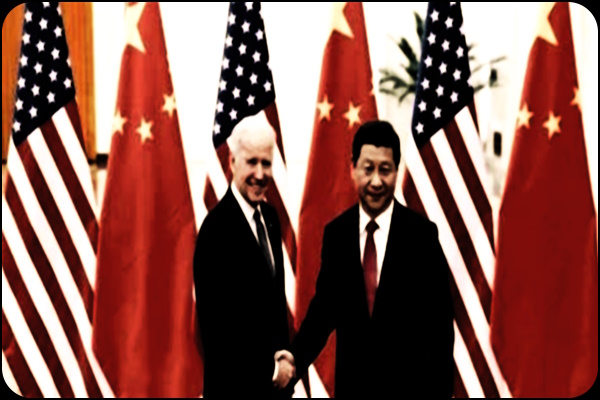 THE COMING WAR WITH CHINA Posted 4/2024 by MIKEY BREWER The war we were meant to lose, because our politicians have already sold us out. Thanks to their policies, the Chinese have already infiltrated the power infrastructure as well as the internet. This reliance on Chinese manufacturers has existed for a while not to mention that we have located our entire production base in nations bordering China, which our rival could easily engulf in a matter of weeks. Of course, our present attempt to produce computer chips has come be a case of too little, too late. In addition, it is predicted that China could have 200,000 soldiers in the Middle East within two weeks, with more on the way, controlling the world's oil leaving the entire free world impotent. They currently have authority over the Silk Road and the Panama Canal, both of which would be extremely valuable in a future global conflict. Do not get me wrong, the war has already begun, and the invasion of the Americas will proceed as planned because it has been determined by the politicians we trusted to govern us. The irony is that China will send its troops here using the same methods it has used for years to ship its goods. This invasion will be swift because once China lands on our soil the conflict will already be over with, as the invasion at this point will have been just a mere formality. China has not crossed that line yet, but in this great narrative it is inevitable... |
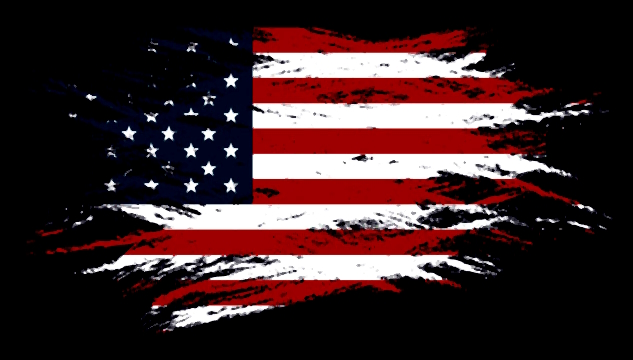 THE LAST PRESIDENT Posted 3/2024 by Howard Dugan It is imperative that we engage in a discourse regarding the prevailing priorities within the United States, as they appear to be profoundly treasonous in nature. These transgressions permeate the highest echelons of government, orchestrated by a cabal operating surreptitiously behind the facade of the current presidential administration. Among their ranks are three individuals affiliated with the Trilateral Commission, who, in their current capacity, are orchestrating the systematic dismantling of the nation. The audacious targeting of a political adversary evokes the Machiavellian tactics historically attributed to past administrations. However, contrary to conventional wisdom, it is the incumbent president who wields the apparatus of the Justice Department as a weapon against his electoral opponent. In the crucible of an election year, efforts to incarcerate his political foe, coupled with a barrage of frivolous lawsuits and attempts to preclude his candidacy in various jurisdictions, underscore a disconcerting erosion of democratic norms. Portraying the former president as a victim requires a Herculean effort, given the contours of his character. Yet, through a concerted campaign of misinformation orchestrated by the Mainstream Media and elements within the Democratic Party, the narrative has been successfully manipulated. Consequently, a discerning public is awakening to the pervasive corruption within the halls of power, fostering a newfound sympathy for the former leader's struggle against a nefarious cabal intent on obstructing his return to office at any expense. Consider the imperative to retain the narrative among the upper echelons; do they actually seek his re-election? |
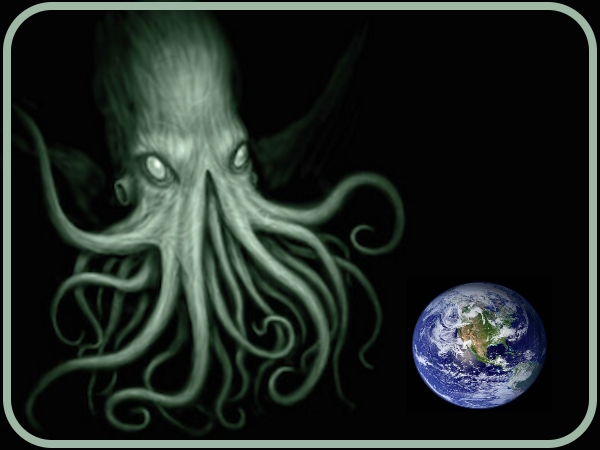 THE RUTHLESS CONSPIRACY Posted 2/2024 by Howard Dugan There is widespread awareness of influential entities such as 'The New World Order', 'The World Economic Forum', and 'The United Nations', often perceived as means of global domination, economic control, and world governance. However, amidst these more prominent organizations lies a lesser-known criminal network that operated covertly for decades. This network engaged in various illegal activities, including drug trafficking, arms dealings, large-scale financial frauds, sexual blackmail entrapment honeypots, unimaginable money laundering, and numerous murders. During the 1980s and 1990s, a 5,000-person criminal network, with George H.W. Bush at its helm as the CEO, functioned behind the scenes and effectively controlled global affairs. Known as 'The Enterprise,' this secretive organization was often referred to as the 'Octopus' by those familiar with its operations... Consider this quote "The livestock have been dissected in this vast arena of human discourse, wherein we witness divisions nestled within divisions, subcategories adorning more categories, in the end when the final verdict looms, the true void lies not in our parsed distinctions but rather our unity, the only real division persisting in this final analysis is the space between the conquered and the free." — Thomas Smith |
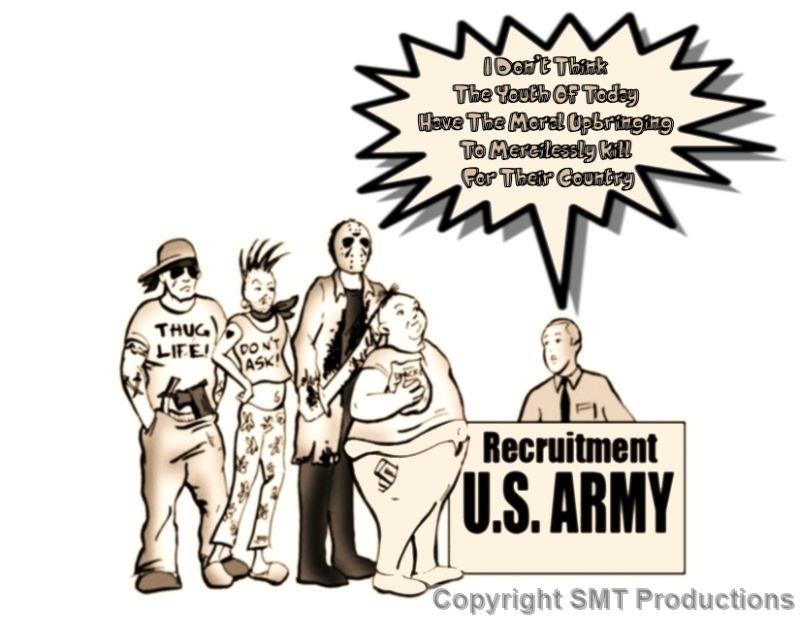 Posted a Quote 1/2024 "Fighting for peace is like screwing for virginity." - George Carlin |
Copyright Disclaimer
